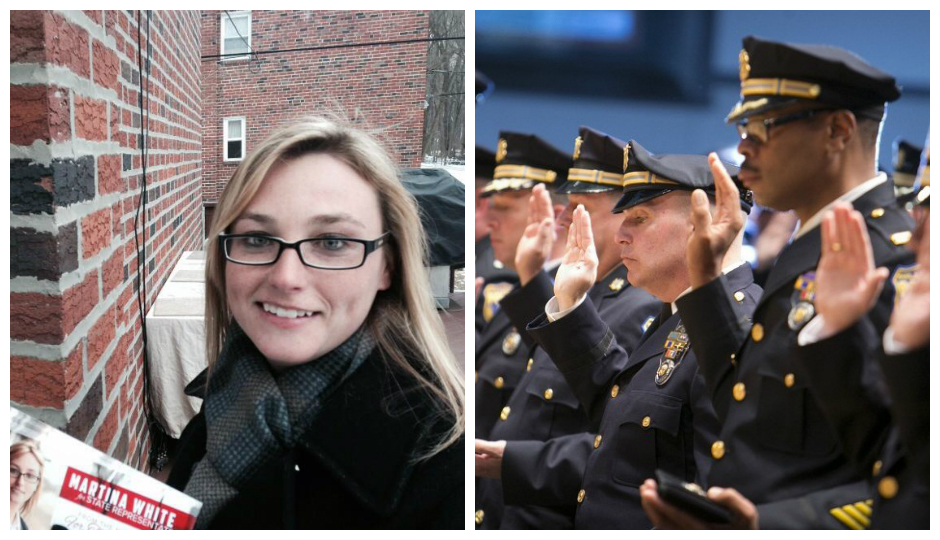Should Cops Who Shoot Civilians Be Named?

State Rep. Martina White (left) is planning to introduce a bill that would prevent police officers involved in shootings from being publicly named. | Photo via White’s Facebook
In the wake of the deaths of Brandon Tate-Brown, Michael Brown and many others, an important question has been raised: Should the public know the names of police officers who shoot civilians?
Police Commissioner Charles Ramsey announced in July that the department would name the cops involved in most police shootings, which was a victory for activists who have been calling for greater police accountability. But mere hours after Ramsey unveiled the new policy, the city’s police union challenged it, arguing that it both puts officers’ lives at risk and violates collective-bargaining rights.
Now, state Rep. Martina White plans to introduce legislation that would put the kibosh on the Ramsey’s policy. The Philadelphia Daily News reported this morning, “John McNesby, president of the city’s Fraternal Order of Police, is expected to join state Rep. Martina White Wednesday to outline a bill to prevent the release of officers’ names and identifying information — except in cases where they are charged with a crime as a result of the shooting.”
This is significant for a number of political reasons.
The Fraternal Order of Police played a key role in White’s victory in a special election in March. The FOP endorsed White, a Republican, over Democratic candidate Sarah Del Ricci during the campaign, and donated $5,000 to White in February. White also celebrated her triumph on Election Day at the union’s headquarters.
White’s win, as well as her forthcoming legislation, are big achievements for the FOP. And they’re just the latest in a series of successes for the police union. Last year, a federal appears court lifted a longtime rule in Philadelphia that barred police offices from making political contributions. “We are thrilled to death by this,” McNesby said at the time. “This finally puts us on a level playing field.”
Then, the union endorsed Jim Kenney during the Democratic primary earlier this year. Kenney, of course, went on to win, and is now the overwhelming favorite in the upcoming general election due to the Democratic Party’s 7-to-1 voter registration edge over the GOP in the Philadelphia.
As a Councilman, Kenney ushered in legislation that decriminalized marijuana in Philadelphia, and he has vowed to end stop-and-frisk. But as the Daily News‘ Will Bunch wrote back in March, “I’m not sure that Kenney’s opposition to stop-and-frisk is that big a deal for either the FOP leadership or the rank-and-file. The real hard work of bringing Philadelphia policing into the 21st Century (kicking and screaming all the way) is a) stronger civilian review than what we now have and b) a complete overhaul of the review system that makes it so easy for disgraced cops to win their jobs back.”
Will Kenney, if he’s elected mayor, push hard for stronger civilian review? It’ll be interesting to see what influence the FOP has on that question.
The expansion of the FOP’s political power comes at a critical time for the city and the nation as a whole. The Black Lives Matter movement and other activists are pushing for a major overhaul of police departments throughout the country. The more power that the city’s police union and others gain, the more difficult it might be to enact police reforms, for better or for worse.